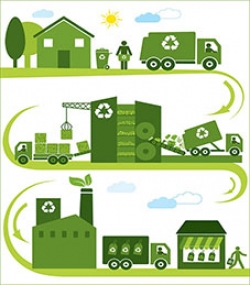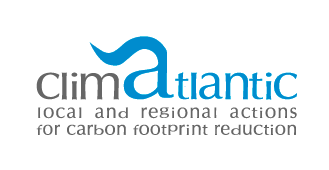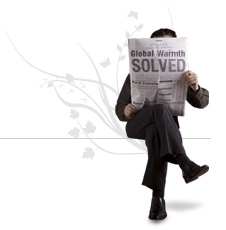NEWS & EVENTS : SOCIAL BEHAVIOUR

Commission asks the public for ideas to develop the Circular Economy
05.28.2015
The European Commission has opened a public consultation to collect views on the main policy options for developing an ambitious new approach on the Circular Economy. Stakeholders' input will help feed the preparation of the new action plan, tobe presented by the end of 2015.
contenidosriet //
The new proposals are being prepared by a project team led by First Vice-President Frans Timmermans, responsible for Better Regulation, Interinstitutional Relations, Rule of Law and the Charter of Fundamental Rights, Vice-President Jyrki Katainen, responsible for Jobs, Growth, Investment and Competitiveness, Commissioner Karmenu Vella, responsible for Environment, Maritime Affairs and Fisheries and Commissioner Elżbieta Bieńkowska, responsible for Internal Market, Industry, Entrepreneurship and SMEs.
First Vice-President Frans Timmermans said: "Europe's future economic development must be part of a sustainable long-term agenda. We need to use our resources more intelligently, design our products with a view to their re-use and recycling, and set ambitious targets for waste reduction and recycling. Today we are asking people across Europe for their input on how to design our policies in a way that stimulates a competitive green economy in Europe and protects the environment for future generations."
Vice-President Jyrki Katainen said: "Moving towards a more sustainable circular economy can create win-win solutions and provide Europe with a new competitive advantage. We want to put forward a comprehensive action plan with incentives for both consumers and businesses to use resources more efficiently. For this we need input from stakeholders in all parts of the value chains."
The policy options for developing a competitive Circular Economy in Europe will look at waste policy and beyond and address the full product lifecycle, taking into account the situation in all Member States. It will include actions on intelligent product design, reuse and repair of products, recycling, sustainable consumption, waste policy, recycling levels, smart use of raw materials, stronger markets for secondary raw materials and specific sectorial measures.
Moving towards a more circular economy can promote competitiveness and innovation by stimulating new business models and technologies as well as facilitating social innovation. This will make the European economy more sustainable and competitive in the long run. We want to set the conditions for the creation of more jobs without using and wasting the amount of resources we do today. This will contribute to a stronger and fairer Europe and decrease pressures on the supply of raw materials and the environment.
Citizens, public authorities, businesses and all other interested governmental and non-governmental parties are invited to answer questions on the various parts of the economic cycle and their role in the transition to a circular economy. A separate public consultation on waste market distortions is going to be open to all interested stakeholders in the coming days.
On 25 June 2015 the Commission will host a stakeholders' conference in Brussels that will feed into the consultation process. The conference (http://ec.europa.eu/growth/tools-databases/newsroom/cf/itemdetail.cfm?item_id=8260&lang=en&title=Circular-Economy-Conference---Less-waste%2C-more-business%E2%80%A6your-views-matter) is open to all stakeholders interested in helping shape European policy in this area.
The consultation will run until 20 August 2015.
Background
Global competition for resources is increasing. Concentration of resources outside the European Union, particularly critical raw materials, makes European industry and society dependent on imports and increasingly vulnerable to high prices, market volatility, and the political situation in supplying countries. At the same time, natural resources are often used unsustainably across the globe, causing additional pressure on raw materials, environmental degradation and threats to ecosystems. This trend threatens to increase with changes in world population and patterns of economic growth.
Unlike the "take – make – dispose" economic model, the ‘circular economy’ aims to keep the value of the materials and energy used in products for as long as possible, minimising waste and resource use. Moving towards a more circular economy in Europe will promote competitiveness, contribute to growth and job creation, and protect our environment.It can also provide consumers with longer-lasting and innovative products that save them money and improve their quality of life. Environmental, economic and social dimensions will go hand in hand.
A ‘circular economy’ aims to maintain the value of the materials and energy used in products in the value chain for the optimal duration, thus minimising waste and resource use. By preventing losses of value from materials flows, it creates economic opportunities and competitive advantages on a sustainable basis.
A successful transition towards a circular economy requires action at all stages in the value chain: from the extraction of raw materials, through material and product design, production, distribution and consumption of goods, repair, remanufacturing and reuse schemes, to waste management and recycling.
The upcoming package will take a coherent approach that fully reflects interactions and interdependence along the value chain. It will comprise a revised legislative proposal on waste and a Communication setting out an action plan on the circular economy.








